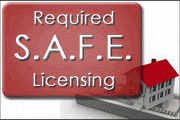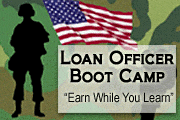North Carolina SAFE / Mortgage Licensing
Best-Selling Training Courses:
Instructor-Led: Webinars
Online Training Courses
About North Carolina Mortgage Licensing
Looking to become a North Carolina Mortgage Broker or Loan Officer to serve communities in Charlotte, Raleigh Durham, and other cities in North Carolina? If yes, you've come to the right place!

The Mortgage Training Center offers a variety of North Carolina mortgage licensing and training courses to help you earn your North Carolina mortgage license or continuing education credits.
What Does A North Carolina Mortgage Broker Do?A mortgage broker is a licensed professional that acts as a middleman between lenders and purchasers. The broker works to find a mortgage lender with terms and rates that best fit the customer's needs, then going through the required processes and working with the mortgage underwriter to get the loan approved.
What Is The Difference Between A Mortgage Broker And A Mortgage Loan Officer?Basically, the Mortgage Broker is the business owner and the Mortgage Loan Officer is an employee of the Mortgage Broker. In some instances, like a single-person shop, the Mortgage Broker does the work of the Loan Officer. Bottom line, the Mortgage Broker is responsible for the work output and complying with applicable laws.
What Does A Mortgage Loan Officer Do?A Mortgage Loan Officer starts the mortgage application process by gathering from potential borrowers the information needed to start that borrower's loan review process. This includes things like W2s, 1099s, bank statements, tax returns, etc.
They are responsible for working with the borrower to complete mortgage loan application, submitting the application to underwriting, following up on any additional information needed or requested from the underwriter, then communicating the loan decision to the potential borrower.
How Do Mortgage Brokers Make Money?Mortgage brokers make money by dealing with lenders who discount the cost of their mortgage product to allow a mortgage broker the ability to charge a fee by submission of a loan package for funding. This relationship between a mortgage broker and a lender is called wholesale lending.
About The Mortgage Broker Licensing Requirements In North Carolina
Mortgage Loan Officers need to be licensed by the state in which they do business, which means they must complete the pre-licensing education requirements, pass the state and national SAFE / NMLS exam, then take eight hours of annual continuing education courses to maintain their license. Check below for applicable mortgage licensing options, as well as recommended courses to help you succeed once you get licensed.
To Comply With Common Mortgage RegulationsThe federal government regulates the mortgage industry through a series of acts passed by Congress. These include:
- Regulation Z / TILA
The federal Truth-In-Lending Act (TILA) requires that lenders disclose the terms of a mortgage in writing. TILA is designed to protect consumers by ensuring clear disclosure of the key terms of the loan, as well as any costs or fees involved. - UDAAP
UDAAP is an acronym referring to unfair, deceptive, or abusive acts or practices by those who offer financial products or services to consumers. Under the Dodd-Frank Act, it is unlawful for any provider of consumer financial products or services or a service provider to engage in any unfair, deceptive, or abusive act or practice.
To Close The Loan- Appraisal Review Workshop
By taking this course, you will learn the details on what the industry looks for in these reviews to prevent fraudulent appraisal practices, plus gain the details and a complete understanding of the Sales Comparison Approach, Income Approach, and Cost Approach 
- Personal And Business Tax Return Analysis
Learn to interpret tax returns for both commercial and consumer lending purposes. - Loan Officer Boot Camp
Our "Loan Officer Boot Camp" training program provides excellent training for new and experienced Loan Officers - and even includes sales pitches and advanced calculations!
To Get A Mortgage License In North CarolinaYou earn your North Carolina mortgage license by:
- Applying for an NMLS account and ID number
- Completing your pre-licensing course requirements
- Passing the SAFE licensing exam
- Applying for your license with the NMLS
Get started by selecting a mortgage pre-licensing course from the list below.
Recommended North Carolina Mortgage Broker And NMLS Licensing Courses
Potential North Carolina Mortgage Brokers can learn at their own pace with our convenient, cost-effective, state and NMLS-approved mortgage loan officer license training courses.
The Mortgage Training Center offers both online and in-person NMLS licensing and NMLS training courses in North Carolina. Simply choose your preferred option from the recommended courses listed on this page, or you can choose "NMLS" and your resident state from the "Licensing" section of the search box herein.
Best-Selling Training Courses:
Instructor-Led: Webinars
Online Training Courses
Find Seminars, Webinars, And Online Training In Your Area
North Carolina Mortgage Licensing Requirements
North Carolina Mortgage Brokers must abide by the SAFE Act, which requires states to establish minimum rules and standards for the licensing and registration of mortgage loan originators. This allows easy access to a Loan Officer and Mortgage Broker's credentials and allows the public to know what kind of mortgage history these providers have.
Essentially, the SAFE Act requires that state-licensed Mortgage Loan Originators pass the 20-hour NMLS licensing exam, and take eight hours of annual continuing education courses.
For details on North Carolina Mortgage Broker Licensing requirements, go to:
NC Commissioner of Banks
316 W. Edenton Street
Raleigh, NC 27603
Telephone: 919/733-0589
Fax: 919/733-2978
Internet: www.nccob.org
Disclaimer: This information provided is based on state laws and regulations, and is subject to change. While we make every effort to asure this information is current and accurate, it is not engaged in rendering legal or professional advice, and shall not be held responsible for inaccuracies contained herein.



